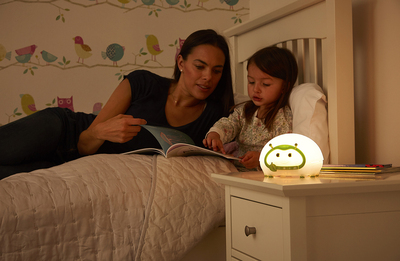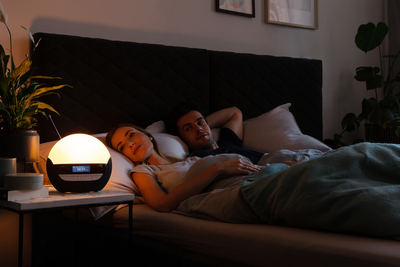WELCOME TO OUR BLOG
The Feel Good Edit
Newest article
![No Light Blues for Cambridge as They Win Boat Race 2018]() News
Mar 26, 2018
No Light Blues for Cambridge as They Win Boat Race 2018
Cambridge's
position as favourites in this year's Boat Race proved to be well-deserved when
both the women's and men's teams rowed to victory over Oxford on
Saturday. The women added to last year's win in style, cruising through
the calm Thames water around 20 seconds ahead of their rivals. Later in the
afternoon, the men made it a double having dominated Oxford from the start.
News
Mar 26, 2018
No Light Blues for Cambridge as They Win Boat Race 2018
Cambridge's
position as favourites in this year's Boat Race proved to be well-deserved when
both the women's and men's teams rowed to victory over Oxford on
Saturday. The women added to last year's win in style, cruising through
the calm Thames water around 20 seconds ahead of their rivals. Later in the
afternoon, the men made it a double having dominated Oxford from the start.
 News
Mar 15, 2018
Lumie Lights Powering the Cambridge Men’s Crew in this Year’s Cancer Research UK Boat Race
The
Cambridge University Men’s Crew has been incorporating Lumie light therapy into
its training regime ahead of this year’s Cancer Research UK Boat Race which
will take place on Saturday 24th March.
News
Mar 15, 2018
Lumie Lights Powering the Cambridge Men’s Crew in this Year’s Cancer Research UK Boat Race
The
Cambridge University Men’s Crew has been incorporating Lumie light therapy into
its training regime ahead of this year’s Cancer Research UK Boat Race which
will take place on Saturday 24th March.
 News
Mar 9, 2018
Working Around The Body Clock
Shift work is known to affect sleep patterns and disrupt circadian rhythms though how well people cope with it can varies a lot. Trying out a more personalised solution to the problems of shiftwork, researchers matched workers to the shift schedules that best fitted their individual body clock.
News
Mar 9, 2018
Working Around The Body Clock
Shift work is known to affect sleep patterns and disrupt circadian rhythms though how well people cope with it can varies a lot. Trying out a more personalised solution to the problems of shiftwork, researchers matched workers to the shift schedules that best fitted their individual body clock.
 News
Oct 2, 2017
Parenting Expert Sarah Ockwell-Smith Recommends Lumie Bedbug
Most people know now that blue light is best avoided at bedtime because its alerting effect can make it difficult to fall asleep. So when we were designing Bedbug, a sleep aid for children, it made sense to keep blue light out of their bedroom.
News
Oct 2, 2017
Parenting Expert Sarah Ockwell-Smith Recommends Lumie Bedbug
Most people know now that blue light is best avoided at bedtime because its alerting effect can make it difficult to fall asleep. So when we were designing Bedbug, a sleep aid for children, it made sense to keep blue light out of their bedroom.
 Research
May 17, 2017
Seasonal Affective Disorder Research Papers
There is now a huge amount of research to support light therapy as a treatment for Seasonal Affective Disorder (SAD). This is just a selection and includes the benefits of light therapy as well as research into the possible mechanisms behind SAD.
Research
May 17, 2017
Seasonal Affective Disorder Research Papers
There is now a huge amount of research to support light therapy as a treatment for Seasonal Affective Disorder (SAD). This is just a selection and includes the benefits of light therapy as well as research into the possible mechanisms behind SAD.
 Research
Aug 22, 2016
Dawn Simulators vs Bright Lights for SAD
Dawn simulators - also called wake-up lights - have a valuable role to play in the treatment of seasonal affective disorder (SAD) according to the latest research led by medical researcher Dr Konstantin Danilenko. The research is published in the Journal of Affective Disorders.
Research
Aug 22, 2016
Dawn Simulators vs Bright Lights for SAD
Dawn simulators - also called wake-up lights - have a valuable role to play in the treatment of seasonal affective disorder (SAD) according to the latest research led by medical researcher Dr Konstantin Danilenko. The research is published in the Journal of Affective Disorders.
 News
Feb 2, 2016
Elite British Swimmers Going for Gold with Lumie Light Therapy
British Swimming’s elite athletes are using Lumie light therapy in their training protocol as they prepare for the Olympics in Rio August 2016.
News
Feb 2, 2016
Elite British Swimmers Going for Gold with Lumie Light Therapy
British Swimming’s elite athletes are using Lumie light therapy in their training protocol as they prepare for the Olympics in Rio August 2016.
 Research
Jan 25, 2016
Research Finds 'No Seasonal Difference in Depressive Symptoms'
You may have seen the news
about research that claims there's a lack of evidence of any seasonal
differences in depressive symptoms. The newspapers have been quick to pick up
on this with simplistic ‘SAD doesn’t exist’ type headlines. But what's
this new research really saying?
Research
Jan 25, 2016
Research Finds 'No Seasonal Difference in Depressive Symptoms'
You may have seen the news
about research that claims there's a lack of evidence of any seasonal
differences in depressive symptoms. The newspapers have been quick to pick up
on this with simplistic ‘SAD doesn’t exist’ type headlines. But what's
this new research really saying?
 Research
Oct 8, 2014
Lumie-sponsored Study: Evening Light Improves Morning Cycling Performance
Sports enthusiasts exposed to bright light in the evenings saw an average 7.2% improvement in their cycling performance the following morning.
Research
Oct 8, 2014
Lumie-sponsored Study: Evening Light Improves Morning Cycling Performance
Sports enthusiasts exposed to bright light in the evenings saw an average 7.2% improvement in their cycling performance the following morning.
![Top Tips: Lighting and Dementia Care]() Quick Guides
May 23, 2014
Top Tips: Lighting and Dementia Care
Sleep disturbances are one
of the more common symptoms of Alzheimer's disease and related dementia (ADRD)
and include a tendency to fall asleep during the daytime as well as increased
waking during the night. In fact, some ADRD patients spend as much as 40% of
the night awake, creating increased risk through falls and injury if they get
out of bed and extra worry and tiredness for family carers.
Quick Guides
May 23, 2014
Top Tips: Lighting and Dementia Care
Sleep disturbances are one
of the more common symptoms of Alzheimer's disease and related dementia (ADRD)
and include a tendency to fall asleep during the daytime as well as increased
waking during the night. In fact, some ADRD patients spend as much as 40% of
the night awake, creating increased risk through falls and injury if they get
out of bed and extra worry and tiredness for family carers.
 News
Mar 15, 2018
Lumie Lights Powering the Cambridge Men’s Crew in this Year’s Cancer Research UK Boat Race
The
Cambridge University Men’s Crew has been incorporating Lumie light therapy into
its training regime ahead of this year’s Cancer Research UK Boat Race which
will take place on Saturday 24th March.
News
Mar 15, 2018
Lumie Lights Powering the Cambridge Men’s Crew in this Year’s Cancer Research UK Boat Race
The
Cambridge University Men’s Crew has been incorporating Lumie light therapy into
its training regime ahead of this year’s Cancer Research UK Boat Race which
will take place on Saturday 24th March.
 News
Mar 9, 2018
Working Around The Body Clock
Shift work is known to affect sleep patterns and disrupt circadian rhythms though how well people cope with it can varies a lot. Trying out a more personalised solution to the problems of shiftwork, researchers matched workers to the shift schedules that best fitted their individual body clock.
News
Mar 9, 2018
Working Around The Body Clock
Shift work is known to affect sleep patterns and disrupt circadian rhythms though how well people cope with it can varies a lot. Trying out a more personalised solution to the problems of shiftwork, researchers matched workers to the shift schedules that best fitted their individual body clock.
 News
Oct 2, 2017
Parenting Expert Sarah Ockwell-Smith Recommends Lumie Bedbug
Most people know now that blue light is best avoided at bedtime because its alerting effect can make it difficult to fall asleep. So when we were designing Bedbug, a sleep aid for children, it made sense to keep blue light out of their bedroom.
News
Oct 2, 2017
Parenting Expert Sarah Ockwell-Smith Recommends Lumie Bedbug
Most people know now that blue light is best avoided at bedtime because its alerting effect can make it difficult to fall asleep. So when we were designing Bedbug, a sleep aid for children, it made sense to keep blue light out of their bedroom.
 Research
May 17, 2017
Seasonal Affective Disorder Research Papers
There is now a huge amount of research to support light therapy as a treatment for Seasonal Affective Disorder (SAD). This is just a selection and includes the benefits of light therapy as well as research into the possible mechanisms behind SAD.
Research
May 17, 2017
Seasonal Affective Disorder Research Papers
There is now a huge amount of research to support light therapy as a treatment for Seasonal Affective Disorder (SAD). This is just a selection and includes the benefits of light therapy as well as research into the possible mechanisms behind SAD.
 Research
Aug 22, 2016
Dawn Simulators vs Bright Lights for SAD
Dawn simulators - also called wake-up lights - have a valuable role to play in the treatment of seasonal affective disorder (SAD) according to the latest research led by medical researcher Dr Konstantin Danilenko. The research is published in the Journal of Affective Disorders.
Research
Aug 22, 2016
Dawn Simulators vs Bright Lights for SAD
Dawn simulators - also called wake-up lights - have a valuable role to play in the treatment of seasonal affective disorder (SAD) according to the latest research led by medical researcher Dr Konstantin Danilenko. The research is published in the Journal of Affective Disorders.
 News
Feb 2, 2016
Elite British Swimmers Going for Gold with Lumie Light Therapy
British Swimming’s elite athletes are using Lumie light therapy in their training protocol as they prepare for the Olympics in Rio August 2016.
News
Feb 2, 2016
Elite British Swimmers Going for Gold with Lumie Light Therapy
British Swimming’s elite athletes are using Lumie light therapy in their training protocol as they prepare for the Olympics in Rio August 2016.
 Research
Jan 25, 2016
Research Finds 'No Seasonal Difference in Depressive Symptoms'
You may have seen the news
about research that claims there's a lack of evidence of any seasonal
differences in depressive symptoms. The newspapers have been quick to pick up
on this with simplistic ‘SAD doesn’t exist’ type headlines. But what's
this new research really saying?
Research
Jan 25, 2016
Research Finds 'No Seasonal Difference in Depressive Symptoms'
You may have seen the news
about research that claims there's a lack of evidence of any seasonal
differences in depressive symptoms. The newspapers have been quick to pick up
on this with simplistic ‘SAD doesn’t exist’ type headlines. But what's
this new research really saying?
 Research
Oct 8, 2014
Lumie-sponsored Study: Evening Light Improves Morning Cycling Performance
Sports enthusiasts exposed to bright light in the evenings saw an average 7.2% improvement in their cycling performance the following morning.
Research
Oct 8, 2014
Lumie-sponsored Study: Evening Light Improves Morning Cycling Performance
Sports enthusiasts exposed to bright light in the evenings saw an average 7.2% improvement in their cycling performance the following morning.




